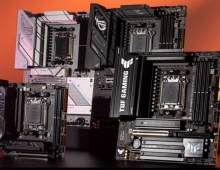
Intel to Bring Virtual Reality and 5G to Olympic Games
Intel will sponsor the Olympics through 2024 in the company's latest bid to show off its technology through sports events. The company will build new kinds of experiences using virtual reality, 5G cellular and drones.
The events will showcase Intel's work in technologies including live streaming video with its 360-degree cameras, 5G and machine learning.
Intel joins a crowded stable of Olympic sponsors from the tech world. Samsung Electronics is the official wireless device partner of the IOC, while Panasonic is the official television and video partner. Alibaba Group Holding and General Electric also provide tech services to the IOC.
Working with the The International Olympic Committee (IOC), Intel's contributions to the Olympic Movement will include technology developments that will be rolled out as the multiyear partnership evolves, for example:
Technological and content support for Olympic Broadcasting Services' host broadcaster operations, as well as for the Olympic Channel, the multi-platform destination where fans can discover, engage and share in the excitement of the Olympic Games all year round.
- Intel's 5G platforms will be used at the Olympic Games. Starting in 2018, Intel will partner on what is expected to be the first 5G showcase, setting the stage for the global deployment of 5G.
- Intel True VR will offer the first live virtual reality broadcast of the Olympic Winter Games, providing fans the opportunity for a more immersive experience from their own homes.
- Intel drone light show technology will create images in the sky.
- Intel 360 replay technology will allow fans to experience Olympic moments from every angle at the Olympic venues. In the future, TV viewers at home will be able to experience what it's like to be at the Olympic Games with a front-row seat, or choose from many different viewing points in the Olympic venues.
Intel is seeking an identity as a technology leader apart from the slumping PC, at a time of slowing growth and consolidation in the semiconductor industry. With the current rise in prices of memory chips, rival Samsung may surpass Intel this year for the first time as the largest chip maker in the world.
Intel's 3D video, newly branded True VR, is one of the highlights of the deal. The company will bring the capability to 16 live and 16 on-demand games including ski jumping and figure skating at the 2018 Winter Olympics in Pyeongchang, South Korea.
VR headsets let users choose angles from which they watch an event in stereoscopic 3D. It supports live streaming and digitally computing an angle such as hovering over a favorite player.
True VR uses a network of up to 38 360-degree cameras, each using a dozen high definition 5K cameras. Mobile production units stitch the streams into 180-degree images and uploads them to a data center for live streaming.
Intel currently supports True VR on Samsung Gear VR headsets. This year, it will add support for other smartphone-based VR systems such Android Daydream and "at least one tethered system," said Brian Krzanich, Intel's chief executive officer.
Intel has also demoed coordinated flight of numerous drones. The drones carry LEDs capable of displaying four billion colors and can act out scripts to show animated effects. Some drones also carry cameras users can access to view live streams with VR headsets.





















